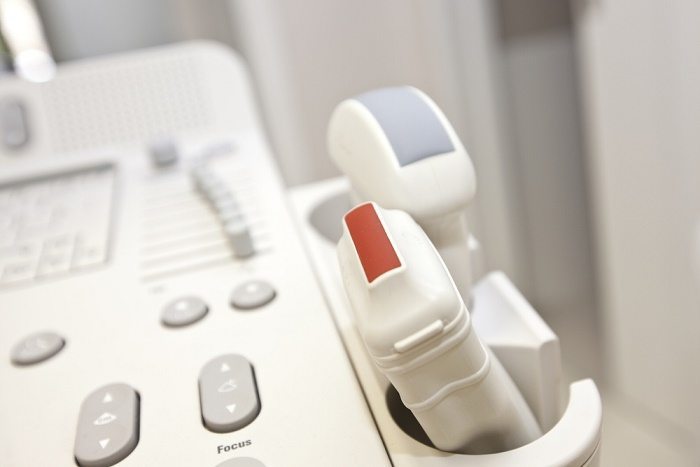California Crisis Pregnancy Centers Dealt a Double Blow in Court
The law, set to go into effect January 1, requires a public notice about access to abortion and birth control at pregnancy-related clinics statewide.

Two federal judges in California delivered a one-two punch to anti-choice activists at crisis pregnancy centers (CPCs) last week by declining to block the state’s new reproductive disclosure law.
The law, set to go into effect January 1, requires a public notice about access to abortion and birth control at pregnancy-related clinics statewide. CPCs have sought to block the California Reproductive Freedom, Accountability, Comprehensive Care, and Transparency (FACT) Act, arguing in a flurry of lawsuits that it violates their constitutional rights to freedom of speech, assembly, and free exercise of religion.
But federal judges at courts in the Northern and Eastern Districts of California rejected requests for a preliminary injunction on the law in separate decisions handed down Friday.
Judge Jeffrey S. White in the U.S. District Court for the Northern District of California held that the three CPCs behind one of the suits fell short of the “high standard” required for a temporary injunction, and “failed to demonstrate that they would face irreparable injury.”
The licensed clinics—the Livingwell Medical Clinic, the Pregnancy Care Center of the North Coast, and the Confidence Pregnancy Center—offer free pregnancy services like pregnancy testing and ultrasounds, espouse Christian beliefs, and oppose abortion rights, according to court documents. The lawsuit was brought on behalf of the CPCs by the American Center for Law and Justice, a Washington, D.C.-based anti-choice legal organization.
Judge Kimberly Mueller of the U.S. District Court for the Eastern District of California also rejected a request for a temporary injunction brought by the Sacramento-based Pacific Justice Institute, which represented three other CPCs. The 59-page decision held that “enjoining the act would interfere with the public interest regarding the health of state residents.”
A recent California undercover investigation found that CPCs, generally staffed by anti-choice activists, discourage patients from having abortions by routinely lying to women about their options. Other investigations found that CPCs convince women to remain pregnant with false promises of financial aid and housing.
The CPCs that brought the Northern District lawsuit contend they will not comply with the law, a fact that White noted in his decision: “Indeed, Plaintiffs maintain that their speech will not in fact be chilled.”
Operators of CPCs have said they’d rather close than comply with the state disclosure law.
The judge also held that the commercial or professional speech, which the CPCs engage in, is subject to a lower degree of scrutiny than individual speech.
“Although Plaintiffs are non-profit organizations, the Court finds that they provide valuable pregnancy-related goods and services, such as pregnancy testing, ultrasound examinations, maternity clothes, and baby supplies,” White maintained. “The speech relating to those goods and services can be considered commercial in nature, and likely is considered commercial by many consumers of Plaintiffs’ services.”
Given that the law is not yet in effect, the judge held that the plaintiffs lacked sufficient standing to win a temporary hold on the law.
Matthew McReynolds, senior staff attorney with the Pacific Justice Institute, said the lawsuit raises serious First Amendment issues, and added that the law will cause “irreparable harm to our clients.”
“Religious nonprofits should not be forced to advertise for the government, particularly when the message is directly contrary to their beliefs and mission,” McReynolds told Rewire in an email.
Representatives from the American Center for Law and Justice did not respond to requests for comment.
Kristin Ford, a spokeswoman for California Attorney General Kamala D. Harris, told Rewire that the office was pleased with the two rulings and “will continue to defend the Reproductive FACT Act to ensure women are able to make informed decisions about their health.”
Opponents have filed at least four court challenges to the new disclosure law.
Passed by a Democrat-led legislature and signed by Gov. Jerry Brown (D) in October, the Reproductive FACT Act, or AB 775, was enacted to regulate pregnancy-related clinics, including the nearly 350 CPCs that operate in the Golden State, according to a directory by the CPC umbrella group Heartbeat International.
Clinics that fail to comply will face civil penalties up to $1,000.
Public information laws about reproductive health have been met with mixed success in court. Appellate courts in recent years have struck down ordinances in New York City and Baltimore that required patients to be informed about reproductive health services. A San Francisco ordinance requiring pregnancy-related centers to tell the truth in advertisements survived a federal court challenge this year.
Assemblywoman Autumn Burke (D-Inglewood), who co-sponsored AB 775, said she finds resistance to the disclosure law confounding.
“It’s hard to understand how those who claim to care about women find it so threatening to inform them about accessing affordable health care,” Burke told the Sacramento Bee.
Backers of AB 775 cited a recent undercover report by NARAL Pro-Choice California that found CPCs routinely lie about the physical and psychological risks of ending a pregnancy and delay a patient’s decision until abortion is no longer an option.
The NARAL report described a CPC employee who mistook an investigator’s intrauterine device for a fetus during an ultrasound, telling the investigator that it was “her baby.” CPC employees told undercover investigators that going through with an induced abortion is unnecessary, because the chance of a spontaneous abortion, or miscarriage, is 30 to 50 percent.
The National Library of Medicine puts the miscarriage rate among women who know they are pregnant at 15 to 20 percent.
